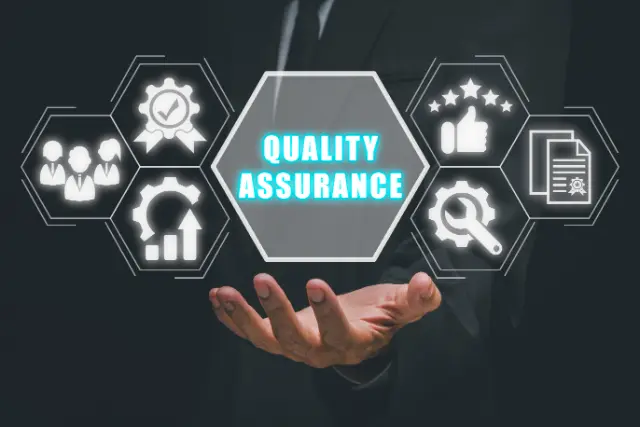Streamlining Document Management and Archival Automation for Insurance Professionals
In the realm of insurance, efficient document management and archival processes are paramount for seamless operations and enhanced customer service. Document Management & Archival Automation using Python, AI, and cloud-based solutions offers a transformative approach to these challenges, bringing unparalleled efficiency, accuracy, and convenience to insurance professionals.
Document Management & Archival Automation streamlines the entire process of document handling, from scanning and indexing to secure archival and retrieval. By leveraging robotic process automation (RPA) capabilities, insurance companies can automate repetitive and time-consuming tasks, such as:
- Scanning and digitizing paper documents
- Extracting and indexing key data from documents
- Classifying and organizing documents based on predefined criteria
- Securely archiving documents in a central repository
- Automating document retrieval based on specific search criteria
Document Management & Archival Automation not only enhances efficiency but also improves accuracy and compliance. Automated systems eliminate the risk of human error during data entry and indexing, ensuring the integrity and reliability of stored information. Furthermore, automated processes adhere to predefined rules and regulations, ensuring compliance with industry standards and regulatory requirements.
Document Management & Archival Automation is a game-changer for insurance companies looking to streamline operations, improve customer service, and gain a competitive edge. By embracing this transformative technology, insurance professionals can unlock the power of automation and drive their businesses towards greater success.

The Power Trio: Python, AI, and Cloud for Enhanced Document Management & Archival Automation
Python’s versatility and robust libraries make it the ideal language for developing both unattended and attended bots for Document Management & Archival Automation.
Unattended bots can be programmed to perform repetitive tasks without human intervention, such as scanning and indexing documents, extracting data, and archiving documents based on predefined rules. These bots can run 24/7, maximizing efficiency and minimizing the need for manual labor.
Attended bots collaborate with human workers to assist with tasks such as document review, validation, and exception handling. Attended bots can be customized to meet specific business needs, providing a high level of flexibility and control over the automation process.
Cloud platforms offer a comprehensive suite of features and capabilities that far surpass traditional RPA/workflow tools orchestrators. Cloud platforms provide:
- Scalability: On-demand scalability allows businesses to adjust their automation capacity based on changing needs.
- Reliability: Cloud platforms offer high levels of availability and redundancy, ensuring that automation processes continue to run smoothly even during outages or errors.
- Security: Cloud platforms implement robust security measures to protect sensitive data and ensure compliance with industry regulations.
AI plays a crucial role in enhancing the accuracy and efficiency of Document Management & Archival Automation. AI techniques such as:
- Image recognition: Can automatically identify and extract data from scanned documents, eliminating the need for manual data entry.
- Natural language processing (NLP): Can analyze and extract insights from unstructured text documents, such as emails, contracts, and customer correspondence.
- Generative AI: Can generate synthetic data or automate document creation based on predefined templates, reducing the workload for human workers.
By combining the power of Python, AI, and cloud platforms, insurance companies can unlock the full potential of Document Management & Archival Automation, streamline operations, improve accuracy, and drive business growth.

Building a Robust Document Management & Archival Automation System with Python and Cloud
The Document Management & Archival Automation process using Python and cloud involves several key steps:
- Document Ingestion: Scanned or digital documents are ingested into the automation system, typically via a cloud-based document management repository.
- Data Extraction: Python scripts leveraging AI techniques, such as OCR and NLP, extract key data from the ingested documents.
- Document Classification: Extracted data is used to classify documents based on predefined categories or rules, ensuring proper organization and archival.
- Document Archiving: Classified documents are securely archived in a cloud-based repository, ensuring long-term preservation and compliance with industry regulations.
- Document Retrieval: A user-friendly interface allows authorized users to search and retrieve archived documents based on specific criteria.
Data security and compliance are paramount in the insurance industry. Python scripts can be integrated with cloud-based security measures to encrypt sensitive data, control access permissions, and ensure compliance with data protection regulations.
Compared to no-code RPA/workflow tools, Python offers several advantages for Document Management & Archival Automation:
- Flexibility: Python is a general-purpose programming language that provides greater flexibility and customization options, allowing businesses to tailor their automation solutions to meet specific requirements.
- Scalability: Python scripts can be easily scaled to handle large volumes of documents, making them suitable for enterprise-level automation projects.
- Extensibility: Python’s vast ecosystem of libraries and frameworks allows developers to extend the functionality of their automation scripts, integrating with other systems and tools as needed.
Algorythum takes a different approach to BPA by focusing on custom Python-based solutions rather than relying solely on pre-built RPA tools. This approach addresses the limitations of off-the-shelf automation platforms, which often lack the flexibility, scalability, and customization capabilities required for complex Document Management & Archival Automation processes in the insurance industry.

The Future of Document Management & Archival Automation**
The future of Document Management & Archival Automation holds exciting possibilities for the insurance industry. As technology continues to evolve, we can expect to see:
- Integration with cognitive technologies: AI-powered automation systems will become even more sophisticated, leveraging cognitive technologies such as machine learning and natural language understanding to improve accuracy, efficiency, and decision-making.
- Blockchain for secure document storage: Blockchain technology can be integrated to create a secure and immutable ledger for storing and managing sensitive documents, ensuring data integrity and compliance.
- Robotic process discovery (RPD): RPD tools can be used to analyze existing Document Management & Archival Automation processes and identify areas for further optimization and automation.
To stay ahead of the curve, we encourage readers to subscribe to our blog for the latest insights and trends in insurance automation. Contact our team today to schedule a free feasibility assessment and cost estimate for your custom Document Management & Archival Automation requirements. Together, we can unlock the full potential of automation and drive your insurance business towards greater efficiency, accuracy, and growth.

Algorythum – Your Partner in Automations and Beyond
At Algorythum, we specialize in crafting custom RPA solutions with Python, specifically tailored to your industry. We break free from the limitations of off-the-shelf tools, offering:
- A team of Automation & DevSecOps Experts: Deeply experienced in building scalable and efficient automation solutions for various businesses in all industries.
- Reduced Automation Maintenance Costs: Our code is clear, maintainable, and minimizes future upkeep expenses (up to 90% reduction compared to platforms).
- Future-Proof Solutions: You own the code, ensuring flexibility and adaptability as your processes and regulations evolve.









